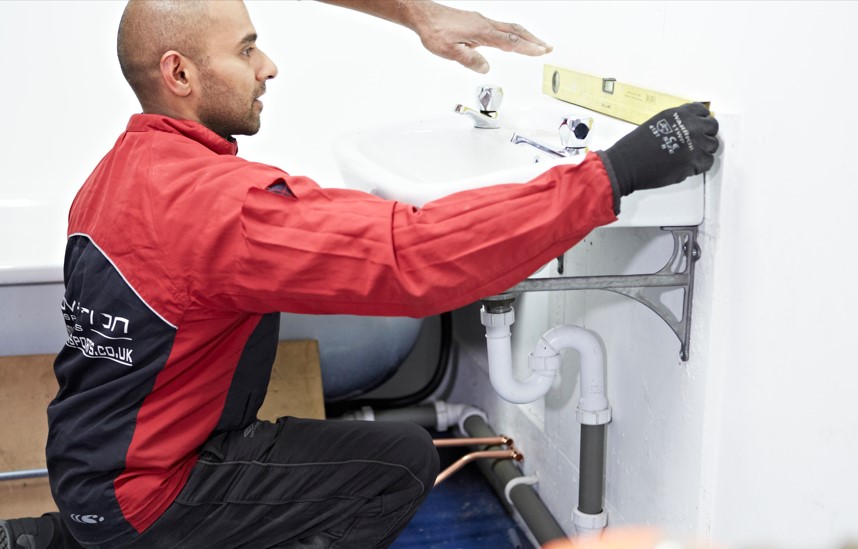
This article looks at the time it takes to qualify as a plumber through a level 2 training course, how that may differ if you already have plumbing experience, what additional qualifications you can do, and the industry registrations for plumbers.
How long does it take to qualify in plumbing?
Does that change if I already have plumbing experience?
What training could I do after that?
Do I need to register?
Plumbers are a vital part of the construction industry, possessing a highly-desirable skill set that means their services are often in high demand.
With an average salary now over £35,000 (according to Indeed’s latest data), plumbers also have the potential to boost that even further should they choose to go down the path of setting up their own business.
But how long does it take to train as a plumber? And what certifications do you need to hold before taking on work? Below we’ll cover everything you need to know about becoming a qualified plumber.
How long does it take to become a qualified plumber?
Your training period will be dictated by the level of qualification you want to achieve, and whether you want to work in a domestic or commercial setting.
A Level 2 training course is an excellent starting point. This qualification will provide you with in-depth technical knowledge about modern domestic plumbing, and will take around six weeks to complete on a full-time basis. There is also the option to complete your learning on a part-time basis, on a schedule of two consecutive weekends per month.
What if I already have some experience in the plumbing industry?
For those who have already been working in the industry for a minimum of three years, but have never achieved a formal plumbing qualification, a fast-track 6035 assessment can streamline the process of becoming officially certified in the industry.
This includes being sent a home study pack before completing theory assessments, followed by a series of practical assessments for which up to 10 days in the training centre are allocated.
What advanced training is available to plumbers?
Qualified plumbers may wish to expand their skill set by completing valuable additional courses such as Domestic Hot Water Systems, Energy Efficiency or Bathroom Fitting.
It’s also common for plumbers to go on and complete their gas training, given the frequent crossovers between the two industries.
What registrations do I need before working?
Anyone working on just pipework, such as fitting bathrooms, sinks, drainage, etc, does not legally have to be registered or accredited to any standard. However, it’s still advisable to register with the CIPHE as this ensures customers that you follow a code of professional standards.
Plumbers who plan to expand their services to include gas must be a member of the Gas Safe Register, while those who plan to work on construction sites need to hold a CSCS Card.
Anyone who wants to carry out unsupervised work with a local water company will need to complete a water regulations course and join WIAPS.
Interested in starting a career as a plumber? Our team would be happy to help you find the course that’s right for you. Drop by the training centre anytime we’re open for a chat, or if you can’t make it in, call us on 01322 280 202.
Editor's note: this post was originally published February14, 2023, and then updated in December 13, 2024.
 Home Study
Home Study
 Plumbing
Plumbing